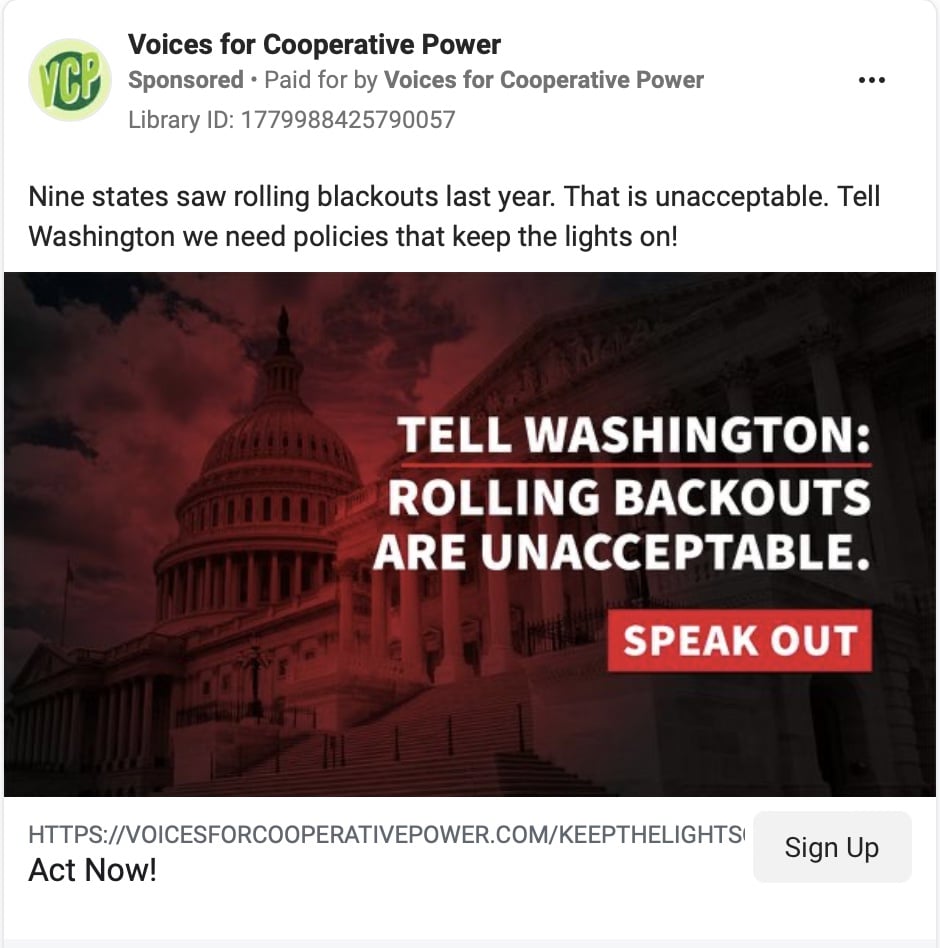Voices for Cooperative Power
Voices for Cooperative Power is an advocacy campaign created by the National Rural Electric Cooperative Association (NRECA) – the trade association for electric cooperatives.
NRECA launched Voices for Cooperative Power in early 2021. The advocacy effort replaces NRECA’s “Our Energy, Our Future” program, which campaigned against President Obama’s Clean Power Plan and other EPA-proposed rules. The Voices for Cooperative Power Twitter handle was renamed from the original “Our Energy, Our Future” account, which explains the account start date of 2009, and older posts frequently link to that effort’s now-deleted website and other social media channels.
Voices for Cooperative Power describes itself as a “network of electric co-op members working together to influence elected officials who are making energy policy decisions that impact our co-ops and, by extension, our way of life.” NRECA noted in a blog post that it launched the advocacy effort to “modernize and improve efforts to influence Congress and the White House.” Louis Finkel, NRECA’s senior vice president of government relations, said, “We’re connecting cooperative communities through the use of social media to have a thoughtful and sustained dialogue about issues of importance to them and to the future of their cooperatives.”
Voices for Cooperative Power launched online advertisements after the EPA proposed carbon pollution standards for new and existing coal and natural gas-fired power plants in May 2023. NRECA’s campaign urges members to tell EPA to reconsider the carbon pollution rules, and many of the advertisements warn of blackouts. One advertisement specifically mentions the rolling blackouts that occurred in 2022. However, the advertisements don’t mention that the blackouts caused by Winter Storm Elliott in December 2022 were due to temperature drops and powerful winds causing widespread coal and gas power plant failures.

Ad Spend
Utilities continue to stall and limit climate action by funding front groups to spread climate misinformation and false solutions to solve the crisis through advertising on social media networks.
Using data from the Meta Ad Library API and existing code from Brown University, EPI created a tool to expose the amount utility front groups are spending on advertisements about social issues, elections, or politics across Meta technologies, along with the specific regions the advertisements target.

